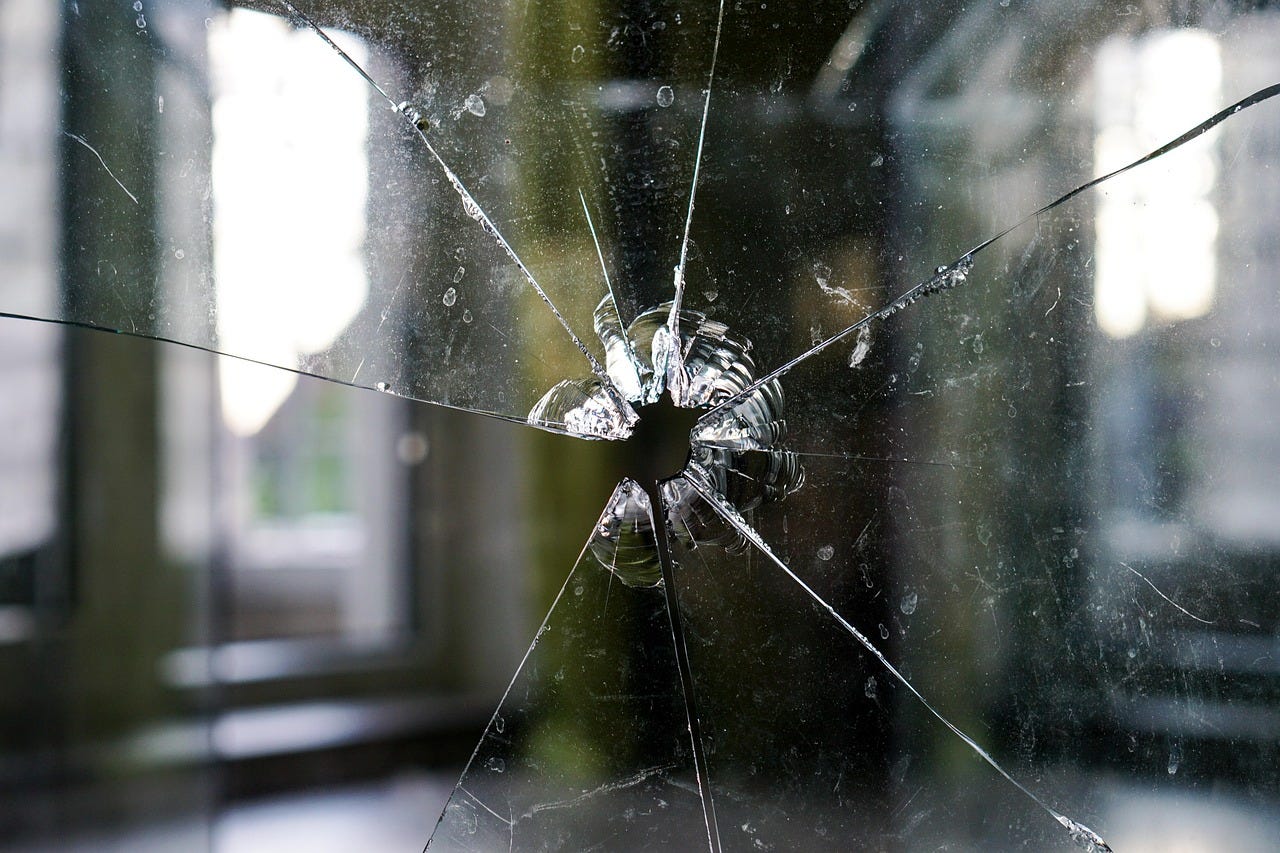Broken Windows, Broken Conversations
#437: Why Enforcing Small Acts of Civility Could Save Society.
I’ve written dozens of times about the importance of communication. I have focused most of that energy on the sender of the message that is being communicated. Making sure you are talking in the right voice, understanding how the person you are discussing something with will take it, watching their body language, and on and on.
What I learned this week is that the problem in the world today is not the message sender; it’s the receiver of that message. We have stopped teaching our children how to cope with bad news or messages they disagree with.
Sure, when they are just toddlers, we let them win races and games. We don’t want to hurt their feelings. We gently remind them to use their inside voices and never scold them for acting out in public. We then dedicated countless hours to ensuring they completed their science projects. Whenever they received a poor grade, we would march into the teacher's office, demanding a change or an alternative opportunity. Then we stopped grading altogether. God forbid we risk hurting someone's feelings.
Participation trophies, passing failing students, helicopter parenting, and not letting our children learn how to manage conflict are all part of communication. As a society, we have lost the ability to manage conflict, understand that there are differences, and that your screaming and yelling at Toys-R-Us when you were five has turned into rioting on campuses, and blaming everyone else for the problems in society.
Charlie Kirk died because we no longer communicate our differences. We have lost the ability to engage in debate and connect with people who disagree with us. Silos have been built, algorithms have been created, all funneling the message we want to hear, and that message is not that I am wrong. Those messages only continue to reinforce our beliefs. Our society lives in echo chambers, and the lack of communication is deafening.
Correcting our course starts with you.
It’s OK to say no or disagree, but be prepared with facts and explain why. It’s OK to discipline them for acting out. It’s OK for you to ground them, take away their smartphones, and video games. They need to pass the test, or they will repeat a grade. The receiver of the message needs to learn how to accept it without dismissing violence. The screaming brat you hear in the grocery store, left unchecked, is the beginning of a person who can’t take an opposing view.
What I am suggesting is a communication version of the broken windows theory for law enforcement. For those not familiar with that, here is the explanation:
The broken windows theory of law enforcement, introduced in a 1982 article by social scientists James Q. Wilson and George L. Kelling, posits that visible signs of minor disorder, such as unrepaired broken windows, graffiti, loitering, or public drunkenness, signal to potential offenders that a neighborhood is neglected and lacks social control, thereby inviting more serious crimes like robbery or violence. By aggressively policing these small infractions to maintain an atmosphere of order and civility, law enforcement can prevent escalation and foster community trust.
Correcting a child, disciplining a young adult, and teaching them how to debate and manage conflict is akin to enforcing minor infractions. Teaching them that words aren’t violence, and only violence is violence. If we do that successfully, we will have a society that can engage in civil disagreements and recognize that there are other opinions.
Of course, there is a lot more wrong with society that these few hundred words aren’t addressing. But if we start correcting the course now, it may be easier to fix the other issues. Because if we can’t debate, how can we agree on solutions in the future?
Charlie Kirk frequently emphasized the importance of open debate and dialogue as a bulwark against violence in society. He argued that when people are silenced, censored, or unable to engage in civil discourse, it creates resentment and dehumanization that can escalate into physical conflict or civil unrest.
You don’t have to agree with any of Charlie Kirk’s opinions, but if you are one of those who want to silence people you disagree with, you’re not just part of the problem - you are the problem.
Leadership Tips
If you can’t take the input from your team, you are the problem
If you won’t let professional debate take place, you are the problem
If you only let people who agree with you be part of your inner circle, you are the problem
If you would rather fire someone, than fire them up, you are the problem
If you’ve read this far, there is hope, although hope is not a strategy. What will you do today, tomorrow, and every day forward, to make sure everyone on your team has a voice?


